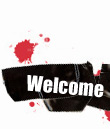Sex Pistols Biography/History.
 The
The
The Sex Pistols may have only been together for two years in the late '70s, but they changed the face of popular music. Through their raw, nihilistic singles and violent performances, the band revolutionized the idea of what rock & roll could be. In England, the group was considered dangerous to the very fabric of society and was banned across the country; in America, they didn't have the same impact, but countless bands in both countries were inspired by the sheer sonic force of their music, while countless others were inspired by their independent, do-it-yourself ethics. Even if they didn't release any singles by themselves, there was an implicit independence in the way they played their music and handled their career. The band gave birth to the massive independent music underground in England and America that would soon include bands that didn't have a direct musical connection to the Sex Pistols' initial three-minute blasts of rage, but couldn't have existed without those singles.
Guitarist Steve Jones and drummer Paul Cook were regulars at a boutique owned by their manager, Malcolm McLaren; bassist Glen Matlock worked at the store. Vocalist John Lydon, who would later perform under the name Johnny Rotten, met the rest of the group at the shop and was asked to join the band. While the band played simple rock & roll loudly and abrasively, Rotten arrogantly sang of anarchy, abortion, violence, fascism, and apathy; without Rotten, the band wouldn't have been threatening to England's government - he provided the band's conceptual direction, calculated to be as confrontational and threatening as possible. The publicity caused by their caustic first single "Anarchy in the U.K." caused the band to be dropped by their record label, EMI. Matlock was fired before their next single "God Save the Queen," which was released on Virgin; it was banned by the BBC. Matlock's replacement was Sid Vicious, a tough street kid who, unlike the rest of the band, couldn't play his instrument.
After releasing one album in 1977, the band headed over to the U.S. for a tour in January of 1978; it lasted 14 days. Rotten left the band after their show at San Francisco's Winterland Ballroom on January 14, heading back to New York; he would form Public Image Limited later that year. McLaren tried to continue the band but Cook and Jones soon turned against him. In the two decades following the Sex Pistols' implosion, an endless stream of outtakes, demos, repackagings, and live shows were released on a variety of labels, which only helped their cult grow.
In 1996, to celebrate their impending twentieth anniversary, the Sex Pistols reunited, with original bassist Glen Matlock taking the place of the deceased Sid Vicious. The band embarked on an international tour in June of 1996, releasing the Filthy Lucre Live album the following month. Four years later, Julien Temple (who helmed the band's first movie, The Great Rock & Roll Swindle) directed the documentary film The Filth & the Fury.
Never Mind the Bollocks, Here's the artwork would like to thank Jeremy Frey, for allowing me to use the above information from his site 'Welcome to the Rodeo'.
 Categories
Categories
- Latest Site News & New CDs & DVDs.
- Introduction.
- Credits Sex Pistols and Public Image Ltd.
- Sex Pistols 1975 - 2008 Gig Guide
- Notes on the Sex Pistols & PIL Collection.
- Sex Pistols Biography/History.
- Never Mind the Bollocks The Album History.
- Anarchy in the USA The Sex Pistols 1978 Tour.
- The Origins of the Sex Pistols.
- Sex Pistols and Punk Rock CD Doubles for Trade.
- Legal Notice.
- Sex Pistols Experience Studio 24 Edinburgh 19th November 2010.




